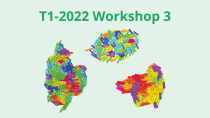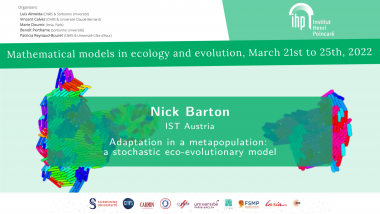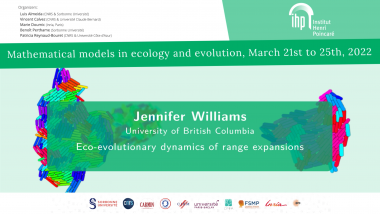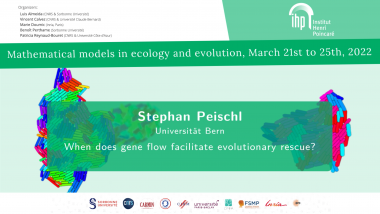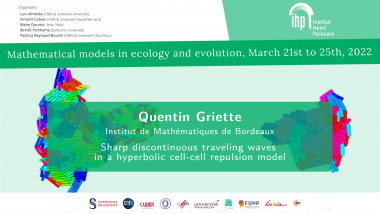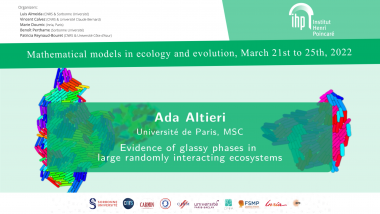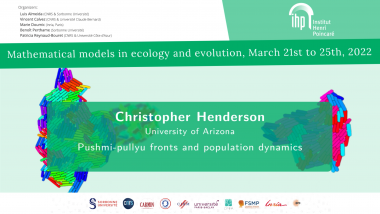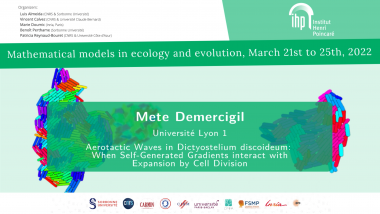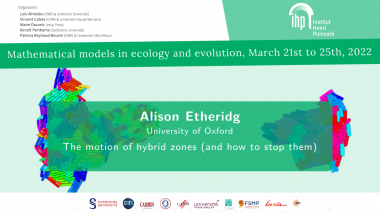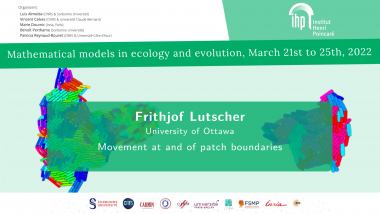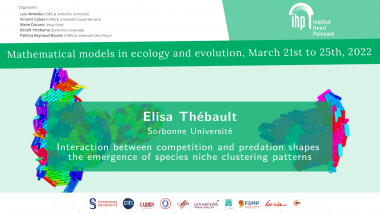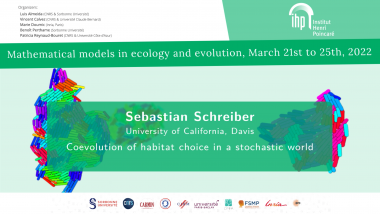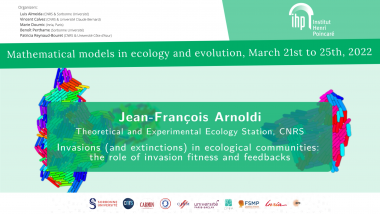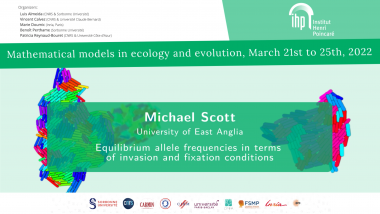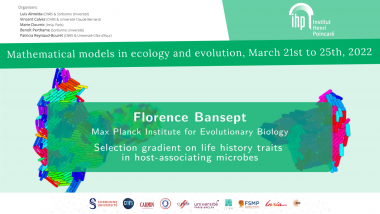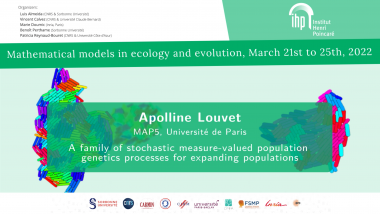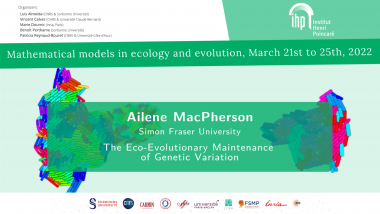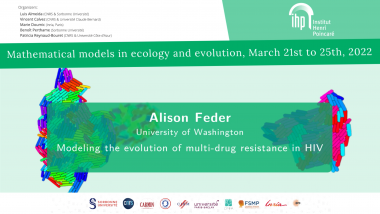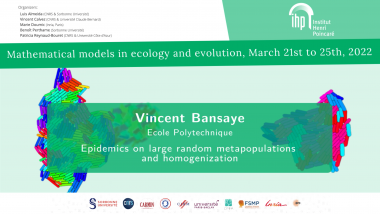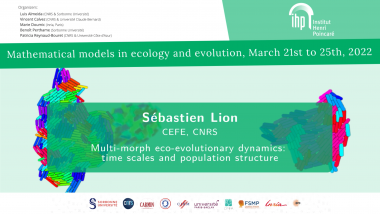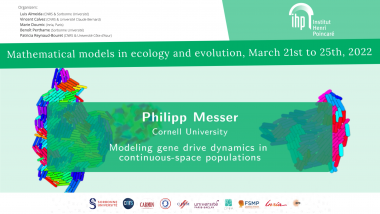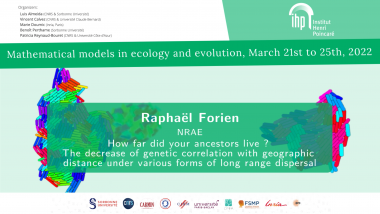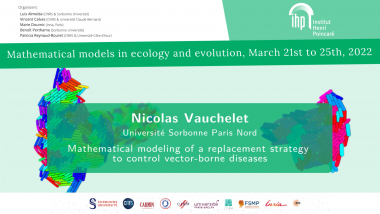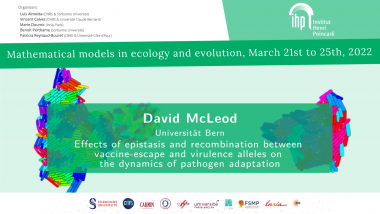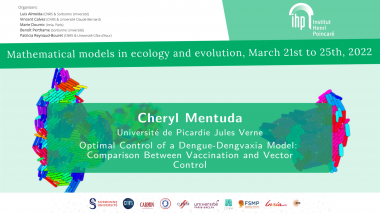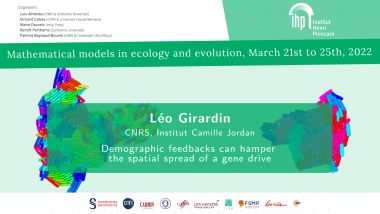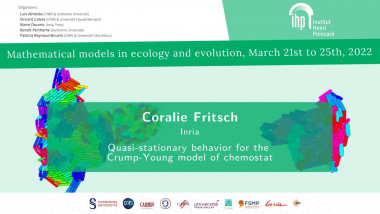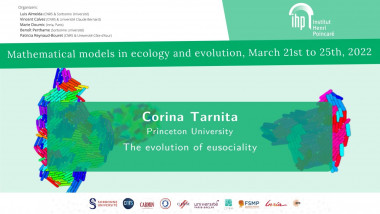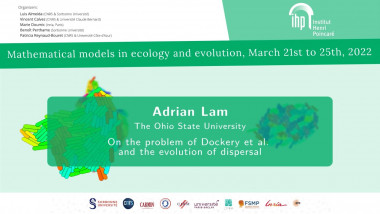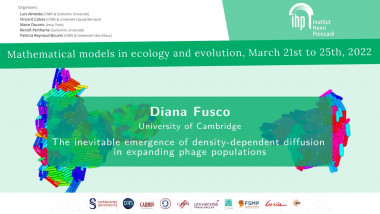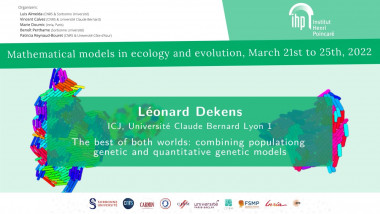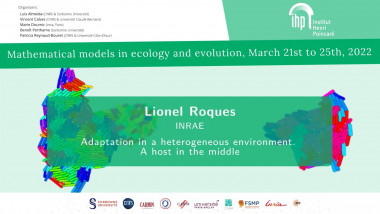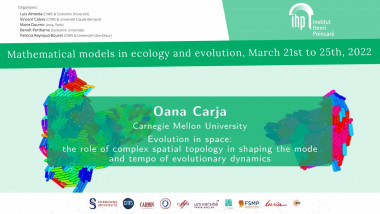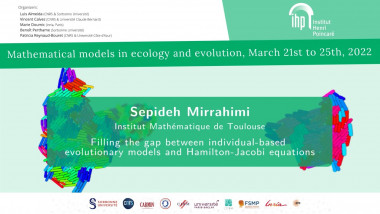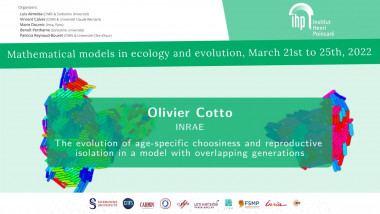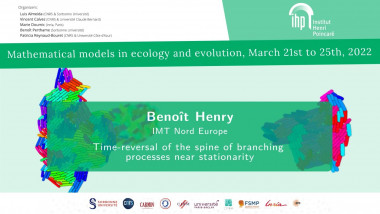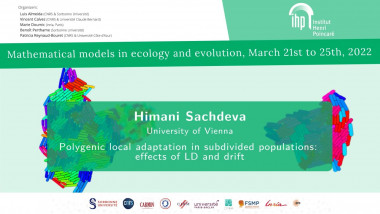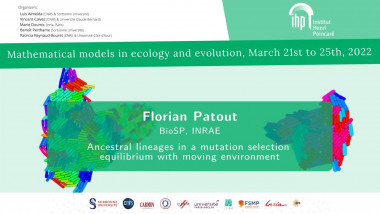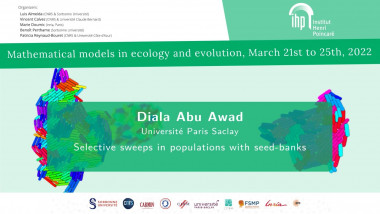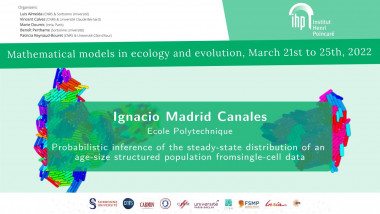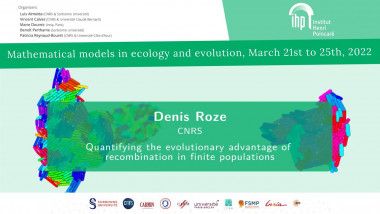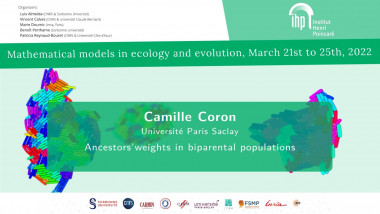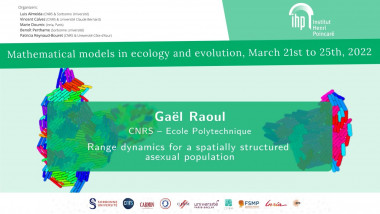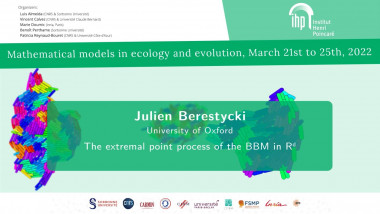Quasi-stationary behavior for the Crump-Young model of chemostat
Joint work with Bertrand Cloez.
The Crump-Young model consists of two fully coupled stochastic processes modeling the substrate and micro-organisms dynamics in a chemostat. The substrate evolves follo-wing an ordinary di˙erential equation, depending on the micro-organisms number. Micro-organims are modeled though a pure jump process whose the jump rates depend on the substrate concentration. It is known that this model extincts almost surely in the sense that micro-organism population vanishes. However, despite its simplicity, the long-time behavior of this process is not well understood. The existence (but not the uniqueness) of quasi-stationary distribution (QSD) as well as some regularity properties of these QSD were proved in the literature. Nevertheless, the long-time behavior of the process before extinction was, until now, unknown. In this work, we prove that there exists a unique QSD and that, conditionally on the non-extinction, the Crump-Young model converges exponentially fast to this QSD. Conver-gence of quasi-stationary distribution is usually proved though Hilbert techniques. Ho-wever, our process is not reversible making these techniques di°cult to deal with. To overcome this problem, we use the recent results of Champagnat-Villemonais and Bansaye-Cloez-Gabriel-Marguet, which are a generalization of usual techniques to prove conver-gence to stationary distribution. The proof is mainly based on hitting time estimates and Lyapunov functions bounds. Due to the deterministic part, the dynamics of the Crump-Young model is highly degenerated. The proof then consists of technical sharp estimates.











